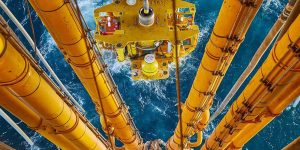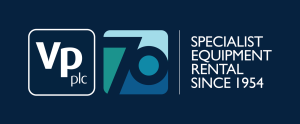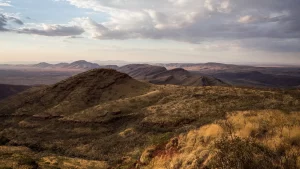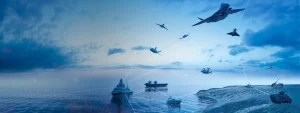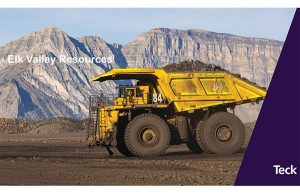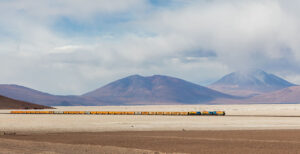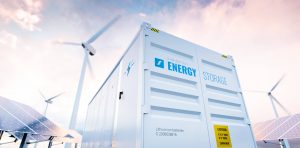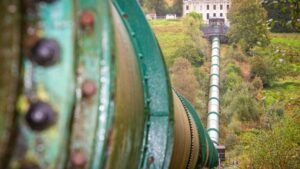Predator Oil and Gas Holdings Plc (LON:PRD) Chief Executive Officer Paul Griffiths caught up with DirectorsTalk for an exclusive interview to discuss their successful IPO, why they are focussed on onshore Trinidad, their interests in offshore Ireland and the key milestones investors can look out for in the coming months.
Q1: First off, congratulations on your IPO today. Could you explain a little more about the background to Predator Oil and Gas?
A1: The forerunner to Predator was Pathfinder Hydrocarbon Ventures Limited which formed in 2011 and that was to acquire a licence in offshore Morocco and to focus on gas opportunity’s onshore Morocco. After bringing Kosmos Energy into licence, we reversed into Fastnet Oil and Gas and subsequently, BP and South Korean company farmed into the offshore licence.
So, at the end of 2014, I was putting together Tendrara gas project onshore Morocco but unfortunately our Board of Fastnet, with one eye on the falling oil price of course at the time, led it to take Fastnet in a different direction into pharma. So, based on this long understanding I have of the history of oil price cycles, I left and reinvested the proceeds of our shareholding in Fastnet into building up Predator by developing an oil and gas portfolio in Trinidad and Ireland over the last few years.
This is focussed on really developing a more, what I would call, a more environmentally-friendly attitude towards oil and gas investment by targeting projects that can either directly or indirectly help reduce carbon dioxide emissions in an interim period during the obvious transition that’s going to be a more sustainable renewable energy economy. So, we believe that there’s currently a niche in the small cap oil and gas marketplace for companies with a strategy that reflects the changing times we live in now.
Key for me through in setting Predator up was also to get the right people on our Board and I’m delighted to say that Sarah Cope, formally Director of Corporate Finance at finnCap, and Dr Stephen Staley, who many will know as the former non-executive Director of Cove Energy, have accepted non-exec positions on our Board. Ronald Pilbeam, my co-director has many years project management experience in downstream engineering and he is a critical component for facilitating the execution of our projects.
One last very important introductory point I’d like to make is that our Board believes that our collective bank of complementary experience in the oil and gas industry, this puts us in a prime position to source, finance and executes projects to create value for our shareholders without the wasteful injection of excessive amounts of capital and large running costs. I think this is very important in the climate we live in, again.
Lean is good, just like a Predator, clues in the name and the logo is an eagle and we don’t want that eagle to become an endangered species either so that kind of gives you the background to the company and our strategy and where we think we’ll like to be positioning ourselves in the marketplace at present.
Q2: You are focused on onshore Trinidad, why that particular country and the area that you’re planning to drill in?
A2: Well, again, we’ve been looking at Trinidad for 3 years now and the opportunity arose to actually participate in a drilling programme to drill some infill production wells in an existing mature field there called Innis Trinity. This was attractive from our point of view because we negotiated a very favourable commercial agreement with our local in-country partner which is Fram Exploration Trinidad Limited, and it also meant immediate news flow because they have a rig available to start drilling literally within weeks of us listing as an IPO So, that was attractive, it was immediate activity, we like to get on with our operations, not just sit about waiting for a rig or waiting for something to happen.
The most important thing was that by establishing a footprint in this field, it kind of creates for us a skipping stones towards what we really want to do which is design and implement a pilot enhanced oil recovery project that uses injected carbon dioxide.
So, for us, Trinidad was a perfect country to try and execute this strategy because there are large number of producing fields that are very mature now, in some cases for 40 /50 years. Trinidad also has a huge supply of nearly-pure carbon dioxide, its ammonia plants inject something like 300 million cubic feet of gas, Co2 gas, into the atmosphere so trying to utilise some of this pollutant and increasing ore recoveries by several fold in the mature fields is actually a very good business model. It’s proven technology because EOR, enhanced ore recovery, using Co2 is common in the United States which is the world leader and has the biggest Co2 EOR field in the Permian Basin in the United States.
So, Trinidad offered us all those criteria, if you like, for our business strategy which is to take Co2 out of the atmosphere where possible but to utilise it for the benefit of increasing oil production.
Q3: Now, Predator also has interests in offshore Ireland, what can you tell me about these interests and how significant could they be?
A3: Again, I’ve been involved in offshore Ireland since 1981 in the exploration and appraisal and even development of various assets so when the opportunity arose to take a licencing option adjacent to Shell’s piped gas field into 2015/2016, I immediately saw that that was a tremendous opportunity for us at that time.
So, it allowed us to kind of cheery pick this licence because of the history of our involvement with offshore Ireland and I was very very comfortable with the geology which was based on a rock solid understanding of the merits and risking of the subsurface geology and that’s always the starting point. So, I knew this particular prospect had a lot of very good comparisons with the Corrib field itself.
The other thing that’s quite important was obviously when Corrib was sold, a 45% stake was sold by shareholders last year for a reported $1.23 billion subject obviously to regulatory approval, that created a situation where you could monetise assets potentially around the Corrib infrastructure.
Obviously, tying back gas in the case that you drill a successful well, in this case maybe 18 kilometres maximum distance to the Corrib infrastructure and utilising that infrastructure, it’s kind of win-win for all parties. It’s win-win for us because it’s less of a capital investment to tie-back than to build a whole new gas gathering facility and it’s win-win for the owners of Corrib because they will basically get the income out of the facilities and the pipeline. Of course, most importantly, it’s win-win situation for the government because this licencing option would be under the new fiscal regime which means the government takes an immediate royalty from first gas so it’s a fair distribution of commercial spoils, if you like, amongst all the stakeholders.
The other thing I want to reiterate, in terms of Ireland, is replacing oil fired power station, or coal fired power stations, with gas reduces Co2 emissions so it doesn’t address the long-term issues about renewable energy, but it does address some of the short-term issues of trying to get Co2 emissions down which has proved to be very very difficult, as everybody knows. So, this is a contribution to that strategy that we have.
Q4: What are the key milestones that investors can look out for in the months ahead for Predator Oil and Gas?
A4: I think turning to Trinidad first is going be the immediate news flow and that will be the commencement of drilling operations onshore where we have the rig available at present to start those operations, those wells only take 10-15 days to drill so it’s very quick news flow on that. They only take 5-10 days to hook up to the existing production and gathering facilities which means you have sales oil very quickly from the project.
The next step in Trinidad will be the design of the Co2 EOR, enhanced ore recovery project, and with some estimates of the potential uplift in production we can get from individual wells from using this technology, this proven technology.
Moving on from that, we then execute, over the next 6-9 months, the pilot Co2 EOR project and then provide updated resources based on the results of that for the Innis Trinity field.
In Ireland, the first step is basically to progress to the next stage in negotiating and obtaining the successful authorisation which would be Frontier Exploration Licence, which would be subject obviously to regulatory approval.
From that, we would move on to open our discussions and continue our negotiations with the new Corrib gas field operator and as you know, that’s still awaiting approval from the regulatory authorities, as far as I understand, the transfer of the operatorship from Shell. The reason for that is because ahead of any drilling commitment, we would want to negotiate a time and tariff agreement before we spent high-risk money drilling a well basically, that’s just a natural commercial thing that most people would attempt to do.
Lastly, and most importantly, over the next 6 months we will be establishing the drilling consortium to drill this prospect, no earlier than 2020 unfortunately, that’s the time you need effectively to plan and execute wells these days. The types of parties we have, already having discussion with, are basically a mix of private equity engineering companies and oil majors and the reason why the project is attractive, in terms of these entities, is that they’re looking at the overall project, in a success case, of it being able to tie-back and monetised gas through the Corrib infrastructure very quickly and that makes it a completely different style of farm-out partnership, if you like, to the normal conventional farm-out where you’re farming out for high-risk exploration wells or appraisal wells. So, that allows us to have a broader audience for potential participation in this.
















